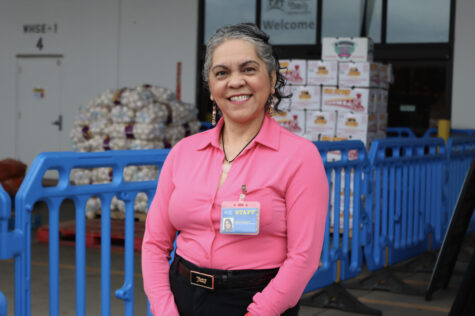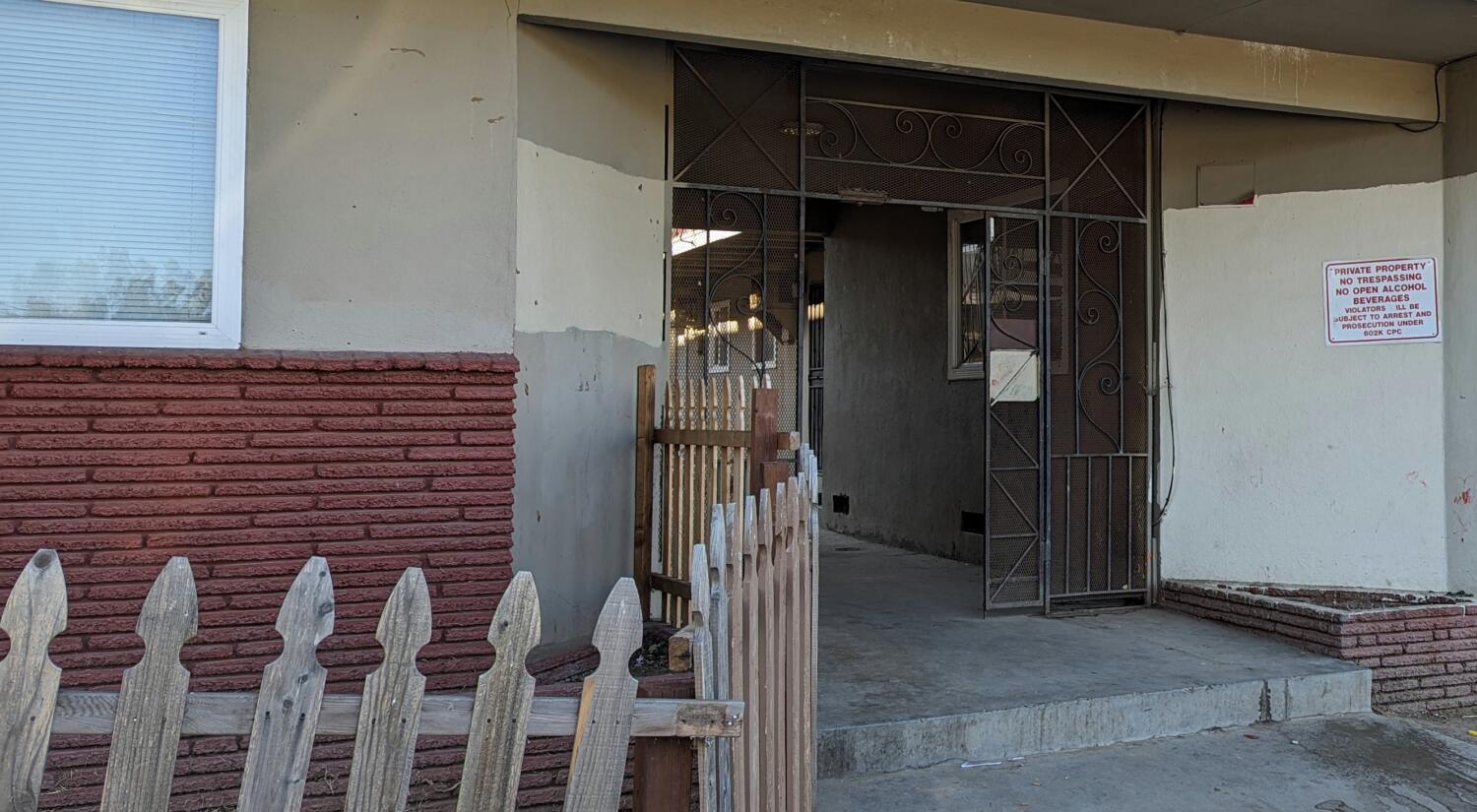The housing crisis affects tens of millions of people in the U.S., but few more than refugees.
Struggling with rent is defined as spending more than 30% of your income on rent. That describes over half of the country according to the U.S. Census Bureau. Housing insecurity impacts lower-income people the most and is exacerbated by issues such as a lack of rental or credit history. Recently settled refugees tend to have low income and as newcomers, no in-country rental or credit history.
Sacramento and the surrounding metropolitan area are home to nearly 13,000 Afghan refugees, among other refugee groups. Refugees are typically relocated to places where there are already existing ethnic or national communities similar to their home countries. Placement is decided by the State Department, Department of Homeland Security and the Department of Health and Human Services. The Sacramento area has the second-largest Afghan community in the country and the highest concentration of Ukrainian immigrants.
Following the withdrawal of U.S. troops from Afghanistan in 2021 and the resulting instability, many Afghans who supported the U.S. became refugees. And many were relocated to the Sacramento region.
Working to Resettle & Connect
There are many US-based humanitarian organizations that resettle incoming refugees. Bryan Kenney works for one such organization. He is responsible for locating and securing housing for incoming refugees to the Sacramento area.

During an interview on Oct. 13 he said of the events of 2021: “It was very hectic. Now typically we have about six apartment setups per week and at that time, we were doing six apartments per day.” An apartment setup is finding and furnishing an apartment for a refugee family.
Rocio Gonzalez works for another of these organizations, Sacramento Food Bank and Family Services (SFBFS). She is the Community Services Manager which includes managing their refugee program. She has worked for SFBFS since 2014. While SFBFS did not participate in the U.S. Department of State’s Afghan Placement and Assistance Program that handled the placement of most refugees from Afghanistan following the events of 2021, they were still largely affected.
Many of the forms of temporary housing that they used were at capacity: “There were five resettlement agencies trying to secure housing, trying to provide services, but all of the Airbnbs and extended stay hotels, especially, were completely full at the time. So we were all struggling to place families and individuals in temporary housing,” said Gonzalez in a Nov. 15 interview.
In recent years, more housing has become available as landlords in the Sacramento area have learned more about the need and shown an increased willingness to rent to refugees. In regard to landlords and property managers, Gonzalez said:
“A lot of people didn’t even know that we resettled refugees here in Sacramento from Afghanistan. So, we started receiving phone calls from people, saying ‘We have this apartment complex, we would like to rent to refugees from Afghanistan.’ Then the war in Ukraine happened. So that also created an awareness about refugees here in Sacramento.”
Small Apartments, High Rent
The chaos of 2021 has improved, but there are still many reasons why it’s difficult to find housing for refugees, specifically. Bryan Kenney outlined some of these issues, saying, “They don’t have any American credit history, American rental history, they don’t have employment income, a lot of times their rent’s gonna be paid with a third-party check.”

Incoming refugees also face other challenges, such as not being able to find housing that can accommodate large families. On this, Kenney said: “They’ll have too many people for the size of the unit that they’re trying to move into. I mean, if you have seven kids, most places aren’t going to let you move into anything less than a four-bedroom house, and they can’t afford a four-bedroom house when they get here.”
This impacts Afghan refugees in particular, says Gonzalez, “The Afghan families have eight children, seven children, nine children, or they may have eight children and mom is pregnant.”
While finding available housing has become easier, the issue of cost remains. “Now, the challenge is the rent increase. It’s like a 2-bedroom apartment. It’s about $1,700, which you might think is not that bad.” Gonzalez said. She continued, “It’s expensive for a family who just arrived as refugees and are only receiving public benefits. We have a one-bedroom apartment and they have to pay $1,500 of rent. So, I think now that the challenge is the high cost of rent for refugees.”
Refugees get various forms of financial assistance. Kenney discussed a couple of these. He said, “They get Department of Human Assistance, so they get DHA funding depending on how many people are in the family and how many DHA cases they have. They also get welcome money from the federal government, depending on how many people they have.”
Families receive $1,325 per person upon arrival, which is typically given to the resettlement agency that they come through to pay for rent.
“What we do is that we do our best in paying as much rent as possible. We may be able to pay three or four months of rent in advance.” Gonzalez continued: “During those four months, three or four months, they’re not paying rent, like out of pocket, but they do receive public benefits from the Department of Human Assistance, so cash aid.”
Kenney mentioned the Matching Grant program that helps refugees attain jobs. The program pays for rent and utilities, as well as providing money for expenses to refugees each month until they become gainfully employed. This support lasts for eight months, or until they are self-sufficient, whichever comes first.
Omid Rahimi’s View
Omid Rahimi immigrated to the United States as an Afghan refugee in August of 2021. He was originally placed in Fremont but moved to Sacramento to be closer to friends who were able to offer support. Many Afghan refugees go through this same process. They will get placed somewhere in California but quickly move to Sacramento because of the large Afghan community.

In a Nov. 14 interview with Rahimi, he mentioned many of the same issues as the resettlement agency employees. “For the new refugees, yes, yes, it is difficult,” said Rahimi. “When someone is new, and they want to get, or they want to rent a house, they have to have a credit score or otherwise someone must be co-signer for them. And we had that problem.”
Rahimi mentioned the high cost of housing as well, “Right now, the rent is too high. Because when the new refugees are coming, without anything, without money, without job, without documents. So, how could he pay for $1,800 per month? And how can he give the proof that, oh, ‘this is my background?’”
New refugees often struggle with finding housing on their own, “It’s hard for them to find when you don’t know the language, when you can’t speak English, it is hard to find. And some of them they don’t know how to go online with a computer,” said Rahimi. “The problem maybe there is some NGOs (Non-Government Agencies) maybe there is some people to help the refugees, the new refugees, but as I said, they don’t have the knowledge of computer skills to search it. They don’t have good knowledge for the English language to ask someone to help me.”
Rahimi has had to work two jobs to afford the cost of living and to send money home, “right now I’m working hard. Because I have some family back home. I have them too. Because in my country, Afghanistan there is no work, there is no job for them. And no work for the girls. Then I have to help them. So I’m working like two types of job. One I’m working for Blue Diamond as the quality inspector and also on the weekends I’m working, Uber.”
How to Help
Amid the current instability in the Middle East and Eastern Europe, it’s more important than ever to be aware of the challenges that refugees face. New refugees are always coming in, which makes the question of refugee housing an ongoing issue.
In 2022, the U.S. welcomed over 25,000 refugees. As of Sept. 30, 2023, that number is already over 60,000. As more people are displaced, it’s critical to know how to offer support, if you can.
There are six major resettlement agencies in the Sacramento area that are open to receiving support in the form of monetary donations or volunteers:
- International Rescue Committee
- Lao Family Community Development
- Opening Doors
- Sacramento Food Bank and Family Services
- World Relief Sacramento
- Refugee Enrichment and Development Association
Refugees face tremendous hardship in being forced from their home countries, but locals and support agencies play a role in helping newcomers make a second home here. If you’re able to offer your support, consider participating through one of the above links.
Written and Reported by John Weiland




